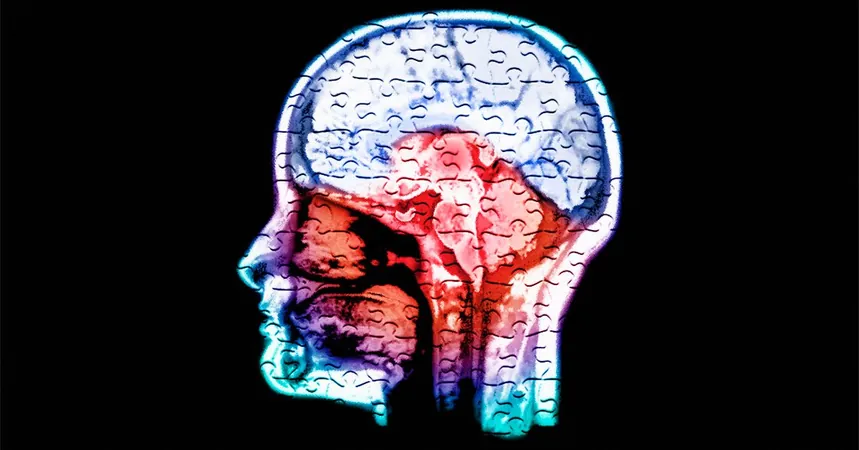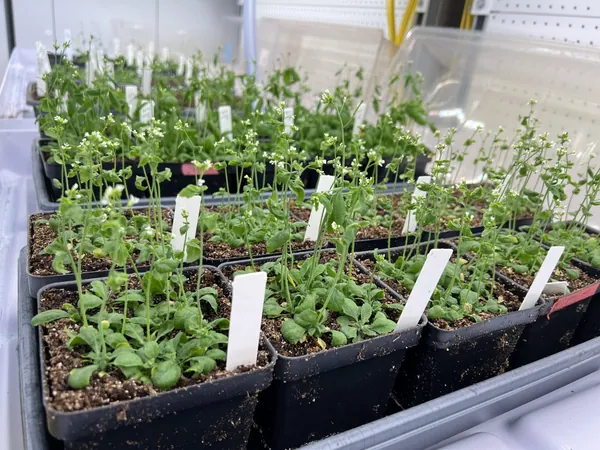
Are Calcium and Magnesium Deficiencies Harming Your Brain Health?
2024-11-11
Author: Daniel
Introduction
As we age, cognitive decline can become an unwelcome companion for many. However, a recent study reveals there's more to this story, particularly when it comes to essential nutrients like calcium and magnesium.
Groundbreaking Research
A groundbreaking study published in the journal Nutrients has shed light on the connection between cognitive performance and the levels of magnesium and calcium in our blood. The researchers discovered that individuals over 60 with lower levels of these vital micronutrients tended to perform worse on cognitive assessments. This finding adds a fascinating layer to our understanding of cognitive health in older adults, especially as our population ages.
Understanding Cognitive Decline
Cognitive decline, while a common aspect of aging, does not strike everyone equally. Some individuals manage to retain sharp mental faculties, while others face significant challenges. It's crucial to differentiate routine cognitive declines associated with aging from the more severe deterioration of dementia. Notably, while cognitive decline can lead to dementia, not everyone experiencing cognitive decline progresses to it.
The Importance of Magnesium and Calcium
With the average age in the Western world steadily increasing, understanding what contributes to these changes has become imperative. Recent interest has pivoted towards the roles that deficiencies in magnesium and calcium may play in brain health.
Previous Studies and Findings
Previous studies suggest that diets rich in magnesium correlate with better cognitive abilities in older adults. Yet, research on calcium tells a more ambiguous tale, with some indicating a potential benefit in reducing dementia risk while others warn that calcium supplements might pose a risk for certain populations.
Methodology of the Study
Instead of relying on dietary surveys, which can be prone to bias—since individuals may not accurately remember their food intake—the latest study took a progressive approach by directly measuring blood levels of calcium and magnesium.
Study Participants and Results
The research involved 1,220 participants aged 60 and older, all hospitalized and monitored for cognitive performance through various tests, including the Mini-Mental State Examination (MMSE) and Clock-Drawing Test (CDT). Results echoed previous findings: worse cognitive performance was linked to lower blood levels of both magnesium and calcium.
Calcium's Significant Role
Interestingly, the most pronounced cognitive impairments were observed among participants with low calcium levels alone, underscoring calcium's significant role in cognitive health. The study also highlighted that those with healthy magnesium levels but low calcium fared poorly in tests, while the reverse didn’t yield the same drastic effects.
Dietary Recommendations
Experts suggest that eating a well-rounded diet rich in whole foods remains the best strategy for ensuring adequate nutrient levels. According to dietary consultants, dairy products are excellent sources of calcium, while for those who may be lactose intolerant or vegan, plant-based alternatives like tofu, spinach, and fortified plant milks are beneficial.
For magnesium, seeds such as pumpkin and chia, along with leafy greens, provide an important boost. Dietary professionals encourage integrating these into meals rather than relying solely on supplements, as the latter can have side effects when not managed carefully under medical supervision.
Impact of Lifestyle on Cognitive Health
Beyond nutrition, social isolation, physical health, and other lifestyle choices play a crucial role in maintaining cognitive function. It’s increasingly recognized that loneliness can significantly elevate the risk of cognitive decline, akin to the dangers associated with smoking.
Conclusion
To summarize, the latest research amplifies our understanding of how magnesium and calcium deficiencies are linked to cognitive decline in older adults. To promote brain health, it is crucial to maintain a balanced diet rich in these nutrients, stay socially connected, manage stress, and avoid harmful habits. Ensuring good nutrition coupled with a supportive community may just be the key to preserving our mental agility as we age.




 Brasil (PT)
Brasil (PT)
 Canada (EN)
Canada (EN)
 Chile (ES)
Chile (ES)
 España (ES)
España (ES)
 France (FR)
France (FR)
 Hong Kong (EN)
Hong Kong (EN)
 Italia (IT)
Italia (IT)
 日本 (JA)
日本 (JA)
 Magyarország (HU)
Magyarország (HU)
 Norge (NO)
Norge (NO)
 Polska (PL)
Polska (PL)
 Schweiz (DE)
Schweiz (DE)
 Singapore (EN)
Singapore (EN)
 Sverige (SV)
Sverige (SV)
 Suomi (FI)
Suomi (FI)
 Türkiye (TR)
Türkiye (TR)